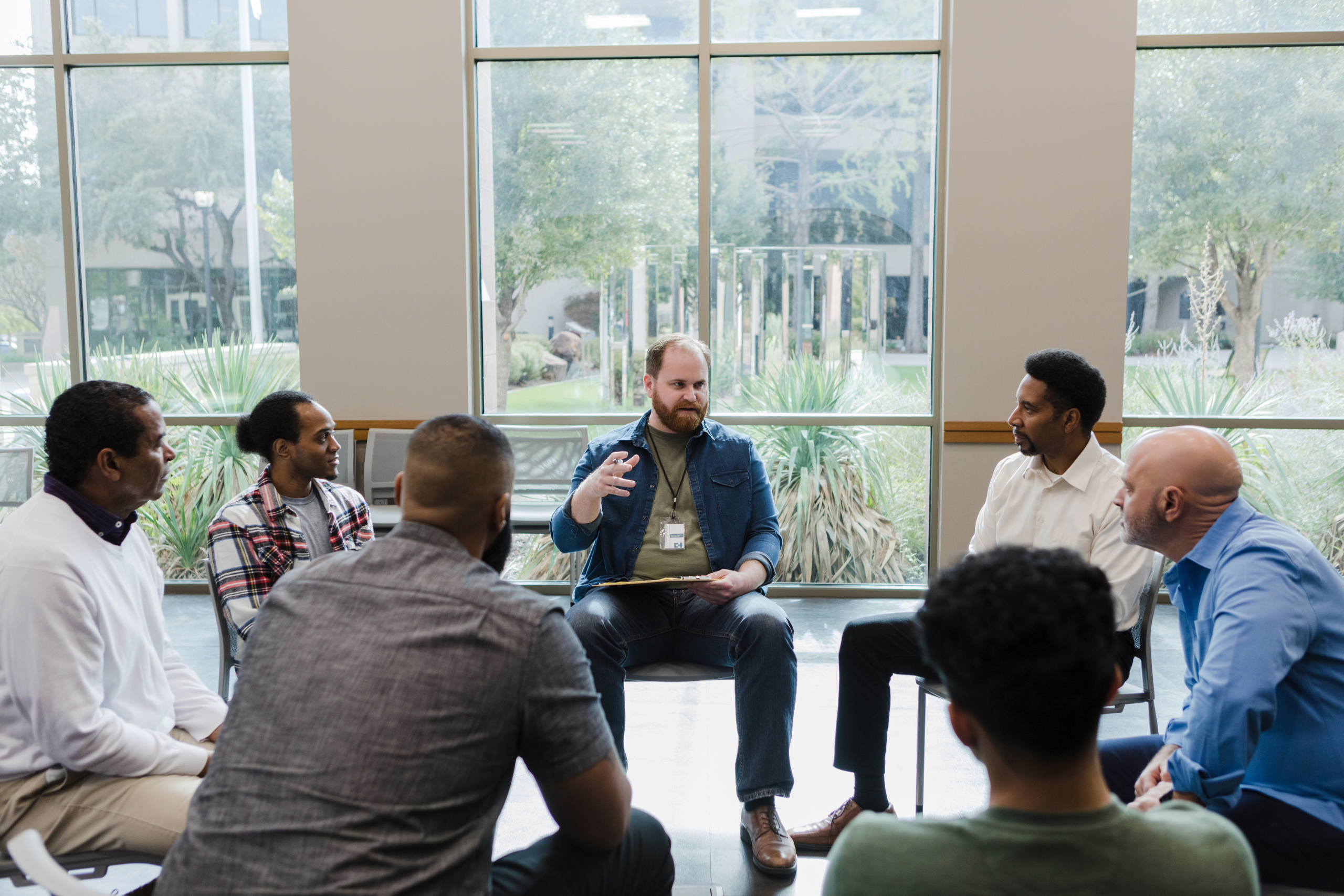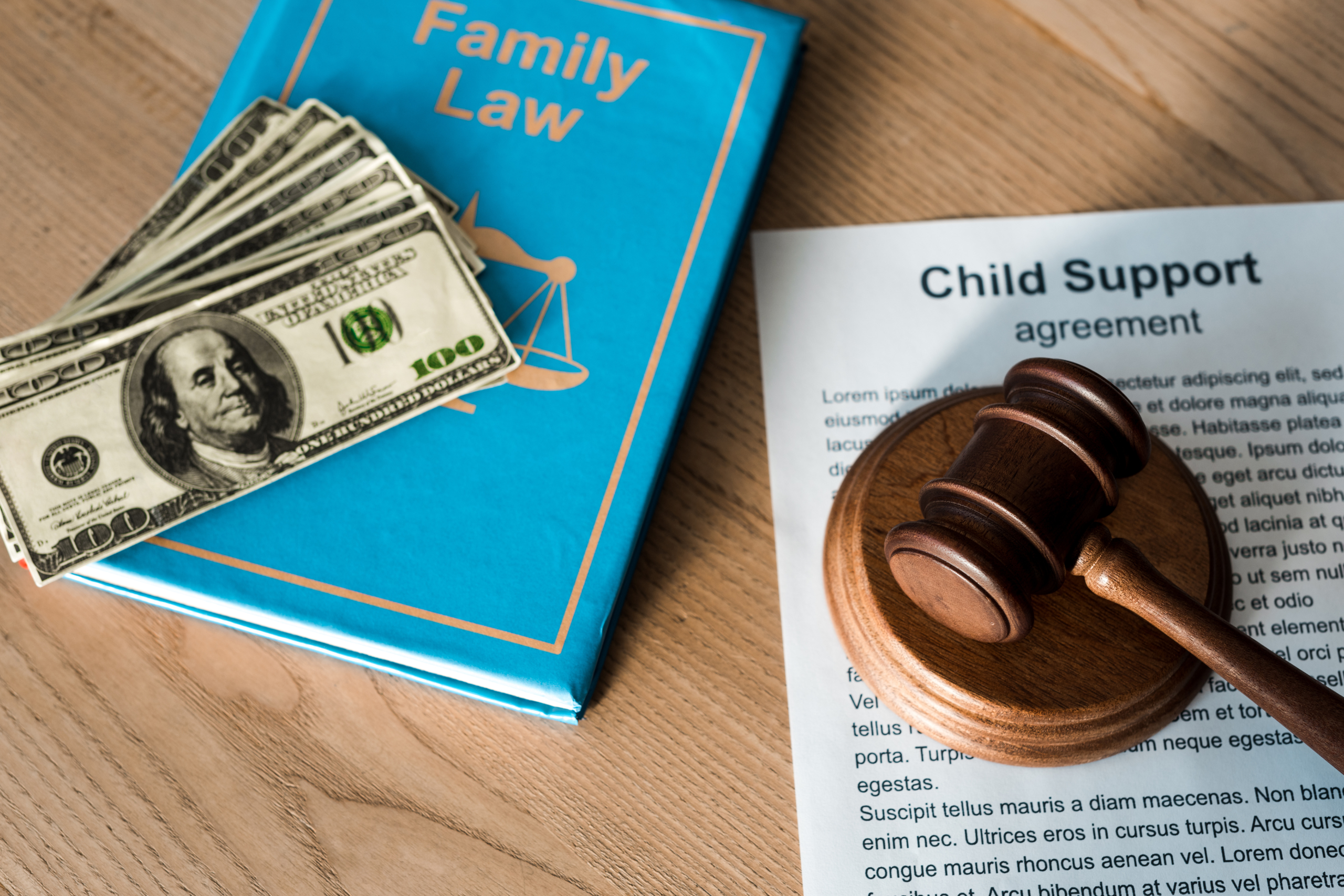Divorce Options for Spouses of Addicts
When a loved one is suffering from substance abuse, you may feel that your world is changing and completely out of control. The person you love may be acting in shocking ways, and their actions may even put you and other loved ones in danger. You may be exhausted and confused from trying to manage the insanity caused by your spouse’s addiction. In these cases, you may be considering divorce to protect yourself and your children.

Divorcing an addict can be challenging and difficult, because you are trying to divorce someone who is irrational and not of sound mind. Many people feel guilt, rage, and fear for the people they care about. At Chambers Family Law, we know how much damage divorce can do to a family, and we are here to help.
If you are married to someone in the throes of substance abuse, alcoholism, and active addiction, and you are worried about protecting yourself and your children, there are divorce options for spouses of addicts. Our family law attorneys are here to make this process as easy as possible for you and your family.
When Should I Seek a Divorce?
Generally, there is no single answer about when the right time for divorce has come. The answer differs with every case, and everyone’s breaking point differs. Generally, however, the time to divorce is when the pain of holding on becomes greater than the pain and fear of letting go.
Below are some common reasons people seek a divorce from an addict:
- Your children are in an unstable or unsafe home
- Your finances are being impacted
- Your spouse refuses to seek help
- You are unable to trust your spouse
- Your spouse engages in and triggers aggressive or even violent arguments
- You feel as though your world is upside down and you are constantly trying to manage the unmanageable or to rationalize insanity
Depending on your case, other situations may arise that leave you ready to seek a divorce. “We know it can be tough to make this call,” said Eugene “Pete” Chambers III, “which is why we take a compassionate, client-focused approach on these cases.”
If you feel ready for this next step, reach out to an Atlanta divorce attorney for guidance.
Steps to Take During Divorce Proceedings
When you decide to seek a divorce from a person struggling with addiction, you may be dealing with a different set of problems and steps than many other divorcing couples. Because your divorce proceedings may be more complicated, you may need to take specific steps to take care of your family.
So where should you start? Below are a few steps you may need to take during divorce proceedings with an addict to protect yourself and your family.
Getting Support for Your Family
Before you commit to divorce proceedings, you may be interested in seeking out addiction support for your spouse. If they are willing to cooperate, this option can be a path to healing for you and your family or help ease any strain or guilt that may arise during your divorce. You may also want to seek out a support group for spouses and family members of those in active addiction.

Remember, however, that you cannot force another person to accept help. If they choose to continue to refuse help, it may be time to take other steps.
Your Children Come First
If you are the spouse of someone in active addiction, and the two of you have children together, your children should always be your priority when choosing whether to divorce your spouse. Unfortunately, living in an unstable home with a parent suffering from addiction can have a severe negative effect on your children.
In some cases, it can even be a physically dangerous situation. For example, if your spouse tries to operate a vehicle while intoxicated, and your children are in the car, that can be life-threatening. In these cases, it is always most important to prioritize your children’s health and safety.
Protect Yourself and Your Children
Unfortunately, a spouse dealing with addiction may be unwilling to cooperate and will not understand why you are making the decisions that you are making.

In these cases, they may even endanger you and your children. When this happens, you may need to take action to protect yourself and your children.
This protection can come in many forms. If you believe that your physical safety is threatened, you may need to seek out a protective order or restraining order against your spouse. That prevents them from communicating or getting physically close to you, which can protect your safety and your children’s safety.
You may also need to take action to protect your finances, among other things. Talk to your attorney about the legal options you have to protect your family.
How Does Addiction Impact Divorce Proceedings?
When you are facing a divorce, you may have specific needs and concerns because of the addictions of your spouse. Because of this, many parts of your divorce case may have specific concerns you should be aware of.
Talking to your divorce lawyer is one of the best ways to get the information you need about the specifics of your divorce case. Be sure to speak with them about the following concerns and more.
Child Custody Agreements
First, keep in mind that child custody agreements when your spouse is suffering from substance abuse may be impacted. When addiction is part of the grounds for divorce, the judge will consider that when approving an agreement for child custody and decide what is in the best interests of the children and their safety.
If you are seeking out sole custody, you may need to point to any dangers your children would face if your spouse maintained unsupervised visitation. If you want to seek joint custody, child custody agreements may be based on whether they complete counseling or rehabilitation and remain in an active recovery program, combined with a safety plan.
Child Support
Many people may worry that their child support may be affected if their spouse is suffering from substance abuse. However, you may find that, despite any financial issues that they may suffer as addicts, that does not mean they are off the hook for child support.

In fact, part of your Georgia divorce proceedings may include determining the child support you are due. This is especially important if you were taking on the entirety of the childcare responsibilities, which places the entire financial burden on you, rather than sharing it.
Visitation Rights
Addiction can be a dangerous thing, and it can lead to situations where you or your children feel endangered by your spouse’s actions. In these cases, not only may child custody be affected, but it can also affect the addicted spouse’s visitation rights.
The most important consideration for the court is the safety of your children. Because of this, your spouse may potentially lose their visitation rights if they fail to complete a recovery program and comply with court-imposed safeguards, such as Soberlink.
Common Questions When Divorcing an Addict
Divorce is already difficult, but divorcing a spouse who is battling addiction can be much more painful and complex. You may struggle to find the answers you need. Unfortunately, every case is different, so the answers to your case may depend on your needs.
Our Atlanta divorce attorneys understand the many facets and details of a divorce from an addict, and we have the tools to help you get answers. If you are struggling to get answers, reach out for case-specific guidance.
While you wait for your consultation with an attorney, check out the frequently asked questions we offer here to understand better what we can offer.
How do I know my spouse is struggling with addiction?
In some cases, it can be difficult to spot addiction. Your spouse may be able to hide their addiction well, as a functioning addict. They may hide the harmful behaviors they are engaging in, so you may not know for a long time that a dependence on this behavior is growing.
However, certain signs may mean it is time to consider seeking counseling or even divorce. Behavioral changes, financial issues, and even violent outbursts may be signs your spouse is struggling with addiction.
What can I do to stop substance abuse or addiction?
One of the most difficult realities you may face as the spouse of an addict is that the addicted person must make the decision to change and that their decision to continue using is completely out of your control . Addiction is a disease, but recovery cannot be forced on the person. They must choose to seek out help for their addiction.
During the divorce process, however, you may wish to offer them aid and support during this time. That may include inpatient rehabilitation, counseling, support groups, AA, and other support. If you are unsure what the best avenue for you and your family is, contact a family lawyer for guidance and aid.
Is addiction grounds for divorce?
Georgia is a no-fault state for divorce, which means you can simply file for divorce on grounds that the marriage is irretrievably broken.
However, there are grounds for divorce that must be proven in Georgia, which can impact the outcome of your case and the way your case will be handled. In some cases, you may want to file a divorce on grounds of habitual intoxication or habitual drug addiction. If you believe this may be the right option for you and your family, talk to a divorce attorney about your options.
Connect with an Atlanta Divorce Attorney About Your Options
Knowing a loved one is facing addiction can mean making impossibly difficult decisions about your marriage and your future. Divorce can be a difficult choice, but in some cases, it may be necessary for yourself and your children.
Our team at Chambers Family Law is here to make the choice easier and to provide the support you need during the legal proceedings. We offer legal and personal experience you can use to help you make the best decisions for your family, depending on the specifics of your wants.
When you are ready for the aid and legal support our team can provide, reach out by calling our office or by completing our contact form.
